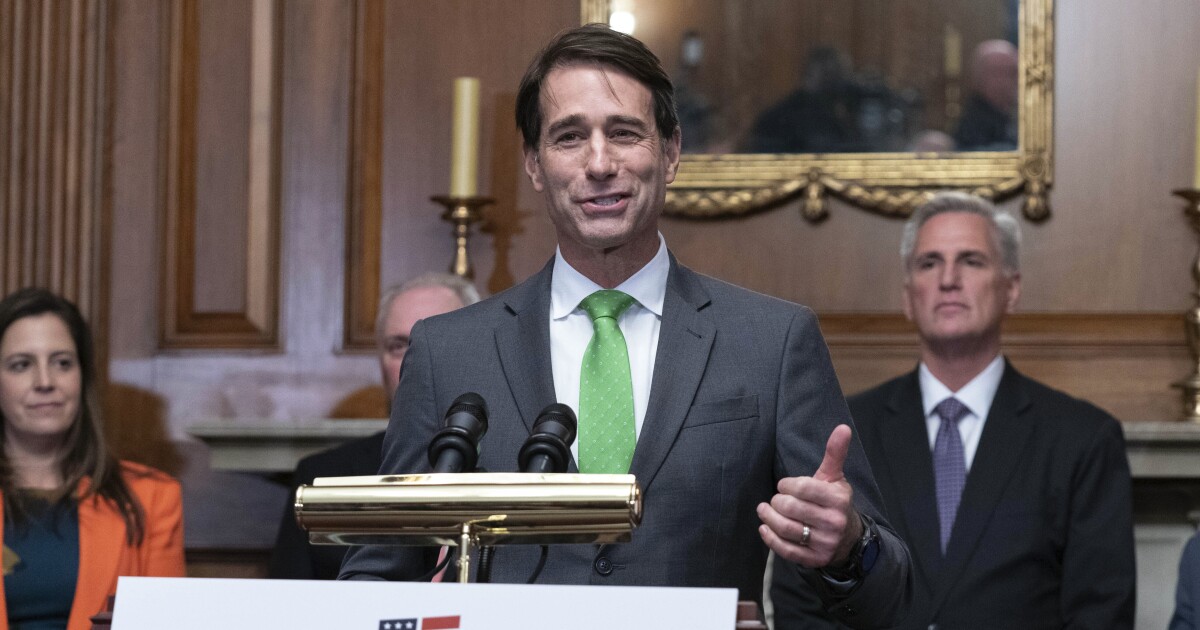

A top GOP debt ceiling negotiator kept the possibility of a government shutdown fight on the table.
Rep. Garret Graves (R-LA) hedged the prospect of a shutdown battle on the behavior of the two sides over the coming months. Although President Joe Biden signed the debt limit bill to avert a projected cash drought on June 5 on Saturday, Congress still needs to appropriate the funding. Failure to do so on time has led to shutdowns in the past.
GOOD COP, BAD COP: HOW GOP NEGOTIATORS HANDLED DEBT CEILING TALKS
“I’m not ruling out anything,” Graves told Face the Nation about a government shutdown fight. “It depends on how reasonable each side is, obviously, in the negotiations. It’s very difficult to predict.”
The debt ceiling merely gives the government more borrowing authority. It doesn’t, by itself, give the government authority to spend money.
Multiple experts gave the Washington Examiner mixed assessments as to whether a government shutdown could happen. Graves’s remarks appear to suggest that a shutdown is indeed possible.
“I want to be clear, Republicans are going to demand continuing to build upon the success that we were able to achieve in debt ceiling negotiations, in changing the way that Washington spends,” he added.
Experts have had different interpretations of a provision in the debt limit deal — the Fiscal Responsibility Act of 2023 — that calls for an automatic 1% cut on discretionary spending if Congress fails to pass the 12 appropriations bills before January 2024. Some believe that clause doubles as a continuing resolution, while others disagreed.
In theory, the passage of the 12 appropriation bills is the traditional method Congress is supposed to fund the government. However, Congress has not done so on time since 1997 and has often leaned on continuing resolutions to keep the government funded instead. The 1% cut was intended to incentivize a return to the 12-bill method.
The debt ceiling agreement already set the top-line budgeting numbers for the appropriations process of the next fiscal year which starts in October. Multiple Republicans have hinted at aspirations to leverage the appropriations process in a bid to extract additional spending concessions from Democrats.
There are several pitfalls there, including the risk of appearing like a “bad faith” negotiator and the fact that the automatic 1% cut applies to defense spending. Military hawks such as Sen. Lindsey Graham (R-SC) have already railed against the debt limit bill for not allocating enough to the military.
Further cuts to defense could be hard for some of those Republicans to stomach in a prolonged appropriations fight. White House negotiators appeared to bank on that as a means of deterring the GOP from gunning for more cuts in the appropriations process.
CLICK HERE TO READ MORE FROM THE WASHINGTON EXAMINER
Graves helped craft the deal alongside fellow GOP negotiator Rep. Patrick McHenry (R-NC). The agreement suspends the debt ceiling until January 2025 in exchange for a slew of spending growth reductions, more stringent work requirements on social programs, rescinding unspent COVID-19 funds, and more.
Under the bill, nondefense and nonveteran discretionary spending growth will be effectively kept down until 2024 before increasing by roughly 1% in 2025. In its present form, the bill could reduce the deficit by $1.5 trillion over the next 10 years, according to an estimate from the Congressional Budget Office.






